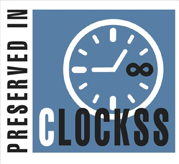Results of a survey on accessibility to renal care in Latin America
Santiago Torales, Comité de Economía en Nefrología, Sociedad Latinoamericana de Nefrología e Hipertensión (SLANH), Uruguay
Leticia Botta, Departamento de Investigación Clínica, Agencia de Evaluación de Tecnologías Sanitarias de Uruguay (AETSU) Departamento Montevideo, Montevideo, Uruguay
Florencia Rossi, Departamento de Investigación Clínica, Agencia de Evaluación de Tecnologías Sanitarias de Uruguay (AETSU) Departamento Montevideo, Montevideo, Uruguay
María Oliver, Departamento de Investigación, Agencia de Evaluación de Tecnologías Sanitarias de Uruguay. Montevideo, Uruguay
Lucía Perdomo, Departamento de Investigación, Agencia de Evaluación de Tecnologías Sanitarias de Uruguay. Montevideo, Uruguay
Objective: To implement a tool for collecting the opinions of nephrologists regarding accesibility to renal care in Latin America. Material and methods: A survey comprising 52 questions/4 dimensions (health coverage; care setting; access to diagnostic/therapeutic technology; renal replacement characteristics) was distributed online (to selected nephrologists/18 countries); certainty per dimension was assessed and correlated with socioeconomic variables using Microsoft Excel® (descriptive) and JASP® (probabilistic). Results: Over 94 responses (mean = 5.2/country) the mean certainty was 3.93/5 points (lower for human resources, higher for regulations and access to technologies in private subsector). Public healthcare funding predominates (65%), coexisting with cross-coverage; availability of professionals were divergent between countries (lower in the public subsector); 70% reported integrated nephrology guidelines (many under development), the registries show asymmetric evolution (37% consolidated, 19% unregistered), 50% cited renal care programs, and 53% reported current transplant laws; diagnostic/therapeutic technology (even basic) was less available in the public sector, correlating with lower economic development and healthcare spending; the private sector does not adequately meet the remaining demand. Conclusions: Obtaining validated information from nephrologists is crucial, to provide decision-makers with concrete elements to develop public policies on kidney health. The developed tool is replicable and scalable for new, more representative and specific studies in different subregions or countries.
Keywords: Accessibility. Renal care. Health policies. Socioeconomic determinants.




